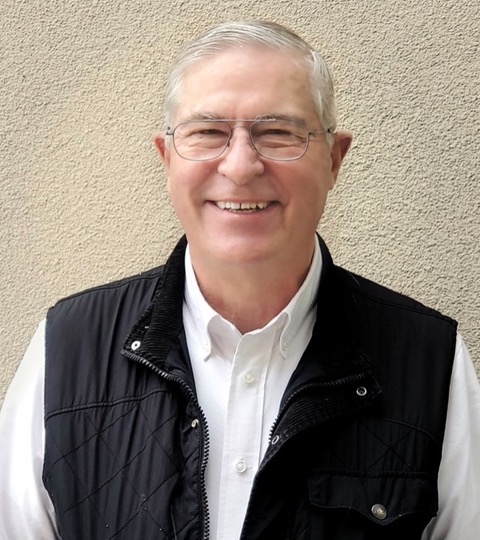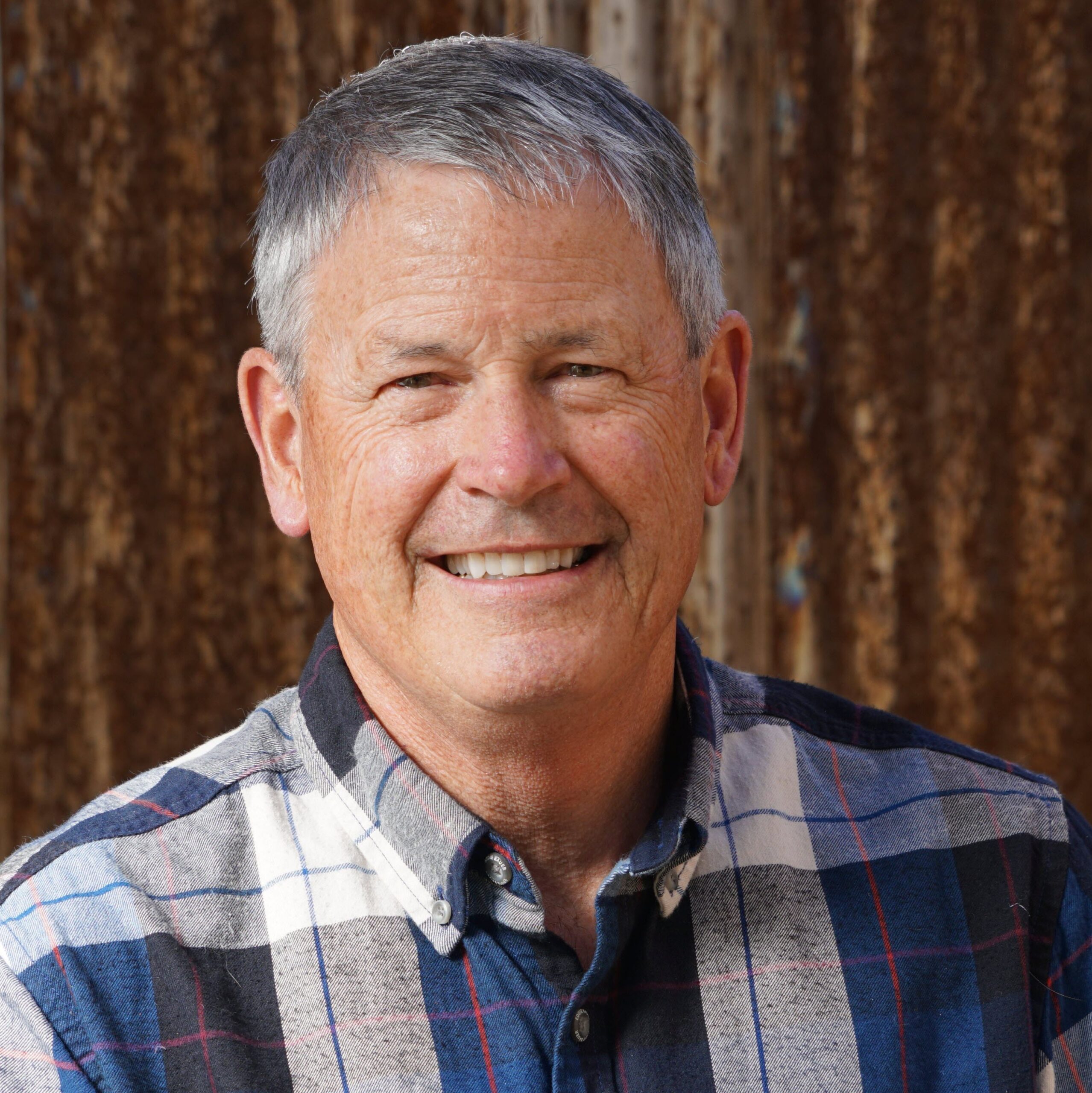We asked the three 2022 La Plata County Commissioner candidates to answer some questions related to sustainability issues in our community. Please see below for their answers which are listed in the order they were received.
Learn more about the Board of County Commissioners!
Note: We reached out to Brad Blake’s contact email listed on his campaign website, four times (and on the same days as other candidates) and did not get a response.

Clyde Church (Incumbent)
1. Should you be re-elected or elected to the La Plata County Commissioner, please let us know your thoughts on what efforts you plan to support, change, or implement around sustainability activities with which the county is involved.
Solar installed on most County buildings – I support continuing to increase the amount of electricity generated by solar panels on County buildings.
Two new charging stations
– These have been installed and I support installing more based on public demand.
– Investigate electric vehicles to replace County fleet vehicles.
– High efficiency electric bikes
– Investigate the growing use of these to determine future needs for worker/commuter routes, separate from recreational trails.
LEED certified on most buildings – Includes Assessor, Clerk, Treasurer (ACT) Building – Continue to work towards LEED certification on future buildings.
Re-insulated and re-roof the Senior Center and Old Main Post Office – Continue to look for opportunities in our older buildings to improve energy efficiency.
Fire mitigation and forest restoration through RMRI, CFLRP, 4 Rivers, Wildfire and Watershed County Project (WWCP), COSWAP, WIIN Grant – Forest restoration and fire mitigation address a landscape approach to preventing wildfires, preserving our clean water resources, protecting recreational resources, our economy, and wildlife.
Farm to table food production
– Regenerative agriculture is needed to rebuild our soils, increase yields, and minimize the effects of climate change.
– I support shortening the supply chain for our food because it benefits the producer and the consumer through better quality foods, lower costs, and it’s sustainable.
2. What metrics would you use to be able to track the progress each department makes meeting its sustainability goals?
Not every department has sustainability goals, we support and fund sustainability projects across all County properties as practical and appropriate because it’s the right thing to do. It saves taxpayers’ dollars, protects the environment, and reduces operating costs for the County. I will continue to support these efforts.
3. How do you plan to work with local non-profits and other regional organizations on sustainability issues like environmental stewardship, social equity, and promoting a thriving local economy?
We currently partner with many nonprofits focused on sustainability, such as Mountain Studies Institute, CDOT, San Juan Citizens Alliance, and Manna Soup Kitchen. Specifically, we changed the state’s road construction priorities in Region 5 to reduce CO2 by widening and providing smoother traffic flow from Elmore’s Corner east to Dry Creek and then to Bayfield in the future. Region 9 Economic Development, on which I sit as a Board member, is funding efficient modular home manufacturing in Colorado.
I support the County providing accommodations in area motels for unhoused individuals and families as part of the Coordinating Council on Homelessness. I supported provided housing in motels for homeless persons isolating during Covid. Purple Cliffs was not a good solution but I supported keeping it open to give Durango time to find an alternative location for managed transitional housing options. I support funding of a transitional housing facility through our commitment of $1 million plus some funding out of the Joint Sales Tax.
Region 9 provides $10 million in revolving loans to local, small businesses that would not otherwise receive funding through traditional banks. I support their work to keep businesses moving. I will continue to serve on the Executive Committee and Audit Committee and support the expanding growth of the Revolving Fund to $12 million next year. I supported the County providing $1.7 million in a revolving loan fund to assist residents with the purchase of the Westside and Triangle Trailer Parks. This provided affordable housing and kept families and individuals out of the Purple Cliffs.
I support working to find options to provide attainable workforce housing so our businesses have the local workforce needed for such jobs as education, firefighting, law enforcement, food industry, agriculture, and human services.
4. Specifically, what is your stance on solar development in the County and your position on the current rewrite of Chapter 90, the oil and gas regulations in the land use code?
I strongly support increasing the amount of electricity generated by solar panels and reducing the amount generated by fossil fuels to protect our environment.
The re-writing of Chapter 90 is necessary to synchronize County rules with Colorado Revised Statues and Colorado Oil and Gas Conservation Commission (COGCC) Rules. I support limited tightening of the rules in La Plata County to be consistent in a few cases with prior County Code. Specifically, I am also concerned about the level of financial guarantees to protect counties when there is a bankruptcy and the wells have no responsible owner.
5. In thinking about La Plata County as a whole, what are your top three concerns about environmental sustainability and what is one proposed solution or initiative you would propose or work on for each.
Access to clean water – My solution is to require more water conservation in cities, towns, and agriculture. I would support the use of gray water when appropriate and safe to replace drinking water. This can include the use of gray water for gardens, crops, and high value native trees. I prefer drip irrigation to the rolling sprinklers or center pivots and the use of gray water in homes for outside watering. As water becomes increasingly scarce, we need to replace lawns with xeric landscaping that requires far less potable water.
Fire mitigation and forest restoration – I support the County continuing to work with partners and grant funds to mitigate forest fires in our wildland urban interface (WUI). By thinning, trimming up, and removing ladder fuels, we will restore the forest to a healthy, historic state. By doing fire mitigation work we also help preserve our water supply and prevent post-fire erosion in our watersheds.
Transitioning to clean power – In order to preserve our air and water quality, I support moving from gas, oil, and coal to clean power sources and support the funding to create this change. These sources could include wind farms, solar farms, geothermal, and hydroelectric generation. This shift will end some jobs but offer new careers in technology, engineering, maintenance, and construction. Colorado has an Energy Transition Program to help displaced workers find new careers and to help communities recover.

Jack Turner
From Jack – Disclosure: My family owns some mineral rights in La Plata County as do thousands of other rural property owners (esp. farms and ranches), schools, and public entities. This is not a significant source of income for me, but I’ll always disclose such whenever relevant to public meetings or commissioner decisions. If any particular issue arises that would be a real conflict of interest, I’ll recuse myself.
1. Should you be re-elected or elected to the La Plata CountyCommissioner, please let us know your thoughts on what efforts you plan to support, change, or implement around sustainability activities with which the county is involved.
The most important “sustainability” issue is the opportunity for the working class, families, students, and homegrown seniors to sustain their ability to live and work in La Plata County. Key to this is developing (not creating barriers) to affordable, workforce housing. Separate from the human issues of being able to live here, the amount of fuel, time, and other impacts of workers forced to commute long distances to work is contrary to sustainability.
2. What metrics would you use to be able to track the progress each department makes meeting its sustainability goals?
I honestly don’t know the answer to this question at this time. Suffice to say, however, that all county programs must be diligently planned, monitored, and tracked for status, efficiency, and measurable end results.
3. How do you plan to work with local non-profits and other regional organizations on sustainability issues like environmental stewardship, social equity, and promoting a thriving local economy?
The overriding principle is to be available and listen to local non-profits, regional organizations, other government entities, and individuals. As a prospective commissioner I’m not predisposed to declare a particular interest in any special group at this time. I’ll do my best to weigh the merits of each issue / organization as they come up and prioritize which I can give fair attention and work to. There are also areas of interest for official assignment that must be agreed to by fellow commissioners (all three commissioners can’t be the liaison to every organization).
4. Specifically, what is your stance on solar development in the County and your position on the current rewrite of Chapter 90, the oil and gas regulations in the land use code?
I’m a supporter of all renewable and efficient energy whether solar, wind, hydro, etc. Any controversy, of course, is in the details. Our work must be economically viable, especially for the long term. We must mitigate and be mindful of our impact on the environment. La Plata County government and all citizens must comply with applicable rules and regulations, but that’s a bare minimum. We are capable of doing better. Elected officials, staff, and citizens must be educated, encouraged, and empowered to protect our land, water, air, and wildlife.
I don’t have specific commentary about Chapter 90 at the time of answering this questionnaire because: 1) The public hearings, work sessions, reviews, etc. are many and still in progress. The public comments and documents are voluminous and subject to much discussion and negotiation. I haven’t had the time to dive into the Chapter 90 rewrite as much as I’d like because my primary focus is affordable / workforce housing and related issues. Conducting a viable Independent campaign, without the built-in advantages and support of a political party, is hugely time consuming as well.
As a principle, we must responsibly regulate and collaborate with the natural gas producers and other extractive industries. They are the source of vital and positive revenue impacts to local government, school districts, and property owners. State and county government must hold them accountable for safety, clean operations, and restoration.
We cannot, however, wield regulations and the legal process to drive producers out of business to satisfy a political agenda at the expense of survival. We all seek a path to the day when all energy is “clean,” but the shift to that is a reasonable transition, not a hard stop.
5. In thinking about La Plata County as a whole, what are your top three concerns about environmental sustainability and what is one proposed solution or initiative you would propose or work on for each.
– Affordable, workforce housing so that locals can live, work, play, and thrive locally,
– Encouragement and support for local agriculture and food production, and
– Support and collaboration with LPEA for clean electric energy, subject to the proviso that plans are economically viable, especially in the long-term.

